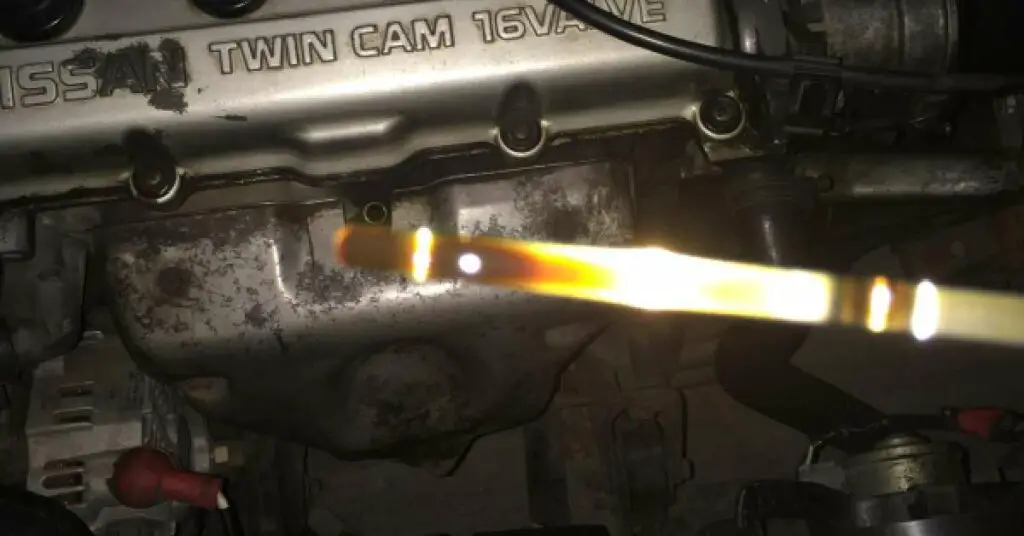
Few things can bring more concern to a car owner than a stuttering engine. The smooth ride you expect suddenly turns into a bumpy, unsettling journey, casting doubts on your vehicle’s reliability. The situation becomes even more perplexing when this occurs after a routine maintenance task, such as an oil change. But what could be the cause of this? And more importantly, how can it be resolved?
In this comprehensive guide, we aim to shed light on one specific type of engine problem: misfires that occur after an oil change. While a common concern for many, it is a subject often shrouded in confusion. By delving into the mechanics of engine misfires, understanding the importance of proper oil change practices, and exploring preventative measures, we aim to provide you with knowledge that empowers you to troubleshoot effectively and maintain your vehicle in optimal condition.
So, buckle up as we navigate the intricacies of post-oil change engine misfires, and drive towards a smoother, more reliable journey.
Understanding Engine Misfire: An Overview
Before diving into the specifics of post-oil change misfires, it is crucial to have a basic understanding of what an engine misfire is.
What is a Misfire and How Does it Occur?
In the simplest terms, an engine misfire happens when one or more of the engine’s cylinders fail to fire correctly. For an engine to run smoothly, the four-stroke combustion process (intake, compression, combustion, and exhaust) needs to occur in a precise, balanced sequence. If this sequence is disrupted in any way, it can result in a misfire.
The causes of an engine misfire are numerous and can range from fuel delivery problems to ignition system defects, mechanical faults, or even control system issues. In some cases, a misfire can be an isolated event, but continuous misfires are a clear sign of a deeper underlying issue that needs immediate attention.
Symptoms of a Misfire
Identifying a misfire at the earliest stage is essential to prevent further engine damage. Here are the common symptoms to look out for:
- The engine runs unevenly or “misses.”
- Your vehicle may shake or vibrate, especially at idle.
- The check engine light comes on.
- Poor acceleration and a decrease in power or performance.
- Increased fuel consumption.
How a Misfire Affects Your Vehicle
Engine misfires, if not addressed promptly, can lead to serious damage to your vehicle. It can cause overheating of the catalytic converter, damage to the engine’s internal components, and decreased fuel efficiency. Moreover, misfires increase emissions, contributing to environmental pollution.
Oil Change: Its Importance and Potential Pitfalls
Regular oil changes are a crucial part of vehicle maintenance. While it might seem like a simple task, there’s more to it than meets the eye, and potential pitfalls can lead to unexpected engine problems such as misfires.
The Importance of Regular Oil Changes
The oil in your car serves several essential functions. It lubricates the engine’s internal moving parts, preventing wear and tear; it helps to cool the parts by reducing friction and carrying away heat; and it helps to keep the engine clean by removing dirt and debris.
Over time, however, oil breaks down and becomes less effective at performing these critical tasks. It gets dirty and can even turn into sludge. This is why regular oil changes are essential. They ensure your engine continues to run smoothly and efficiently, prolonging its lifespan.
The Process of a Proper Oil Change
The process of an oil change involves draining the old oil, replacing the oil filter, and then filling up the engine with new oil. While it may sound straightforward, there are several steps in the process where things can go wrong if not done correctly. These include using the wrong type of oil, not replacing the oil filter, or not securing components properly after the change.
Common Mistakes Made During Oil Changes
There are a few common mistakes that can be made during an oil change that could lead to a misfire:
- Incorrect Oil Type: Each vehicle requires a specific type of oil. Using the wrong one can lead to poor lubrication and potentially cause a misfire.
- Dirty or Faulty Oil Filter: The oil filter needs to be changed with the oil. If it’s left unchanged or if the new one is faulty, it can cause contamination in the oil and lead to a misfire.
- Oil Leaks: If the oil drain plug or filter is not properly secured, it could lead to oil leaks, decreasing the oil pressure and potentially causing a misfire.
Why Does a Misfire Happen After an Oil Change?
An oil change is a routine procedure and, when done correctly, should improve your vehicle’s performance rather than hinder it. However, there are a few reasons why an engine might misfire following an oil change.
Incorrect Oil Type or Grade Used
Every car requires a specific type and grade of oil. These requirements are set by the vehicle manufacturer and are based on several factors including the engine design, operating temperature, average RPMs, and more. If the oil used during the change doesn’t meet these specifications, it can cause various engine issues, including a misfire. For instance, using oil that’s too thick for your vehicle might prevent it from lubricating the engine effectively, leading to increased friction, overheating, and potential misfire.
Contaminated Oil Filter
The oil filter’s job is to clean the oil before it circulates around the engine, removing harmful contaminants that could otherwise cause damage. If the oil filter isn’t replaced during the oil change or if a defective filter is used, these contaminants could enter the engine and lead to issues such as a misfire. This is especially true if the contaminants reach the spark plugs or fuel injectors, both critical components for the engine’s combustion process.
Damaged Spark Plugs or Wires
During an oil change, it’s possible that the spark plugs or wires could inadvertently get damaged or coated in oil, especially if care isn’t taken. The spark plugs and wires play a crucial role in the engine’s combustion process. If they’re not working correctly, it could lead to a misfire.
Residual Oil on Engine Parts
When changing oil, it’s possible for some oil to spill onto other parts of the engine. If oil gets on the spark plugs or wires, for example, it could cause them to function poorly and lead to a misfire. It’s important to clean up any spilled oil during an oil change to prevent this.
Diagnosing a Misfire Post Oil Change
The realization that your vehicle might be experiencing a misfire post an oil change can be quite disconcerting. However, accurately diagnosing the cause is an essential first step towards finding a solution.
Basic Steps to Diagnosing a Misfire
Your vehicle’s symptoms can often provide clues about the cause of the misfire. Pay attention to the following:
- Observe the Check Engine Light: Modern vehicles are equipped with an onboard diagnostic system. If your check engine light is flashing, it’s often indicative of a misfire.
- Listen to Your Engine: If your engine is running roughly or making unusual sounds, it could be due to a misfire.
- Check for Oil Leaks: Look under your vehicle for any signs of oil leaks. A leaking oil filter or drain plug could cause oil pressure to drop, leading to a misfire.
- Inspect the Spark Plugs and Wires: Carefully examine the spark plugs and wires for any signs of oil contamination or damage.
When to Involve a Professional Mechanic
While some causes of misfires can be diagnosed and fixed at home, others may require the expertise of a professional mechanic. If you’ve conducted the basic checks and the cause of the misfire is still unclear, or if you’re uncomfortable performing these checks yourself, it’s best to take your vehicle to a professional.
Remember, it’s crucial not to ignore an engine misfire. The longer it’s left unresolved, the higher the chance of causing serious damage to your vehicle.
In the next section, we’ll explore best practices for preventing misfires after an oil change, ensuring your vehicle remains in optimal condition.
Preventing Misfires After Oil Changes: Best Practices
Prevention is often the best remedy when it comes to automotive issues. By following best practices during oil changes, you can avoid the inconvenience and potential damage caused by engine misfires.
Tips and Best Practices for Oil Changes
- Use the Correct Oil: Always use the type and grade of oil recommended by your vehicle’s manufacturer. If you’re unsure, consult your vehicle’s owner manual or a professional mechanic.
- Replace the Oil Filter: Never overlook replacing the oil filter during an oil change. An old or contaminated filter can lead to several engine problems, including misfires.
- Avoid Spills: Be careful not to spill oil onto other parts of the engine, especially the spark plugs and wires. If spills occur, clean them up immediately.
- Secure Everything Properly: Ensure that the oil drain plug and new oil filter are secured properly to prevent oil leaks.
Importance of Professional Oil Change Services
While changing oil can be a DIY task for some, getting it done professionally has its advantages. Professionals have the right tools and knowledge to avoid common pitfalls. They can also inspect your vehicle for any other potential issues during the service, providing an added layer of preventative maintenance.
Conclusion: Ensuring Smooth Drives Post Oil Change
Maintaining your vehicle’s engine is critical for its longevity and performance. One of the core components of this maintenance is regular oil changes. However, as we’ve learned, the simple task of an oil change, if not performed correctly, can lead to unexpected issues like engine misfires.
By understanding what an engine misfire is, why it can happen after an oil change, and how to prevent it, you’re better equipped to ensure the health of your vehicle’s engine. Remember, proper oil changes involve using the correct oil type, replacing the oil filter, avoiding spills, and securing all components correctly.
However, if you notice symptoms of a misfire after an oil change, don’t panic. Begin by diagnosing the problem, utilizing your vehicle’s symptoms and tools like the onboard diagnostic system. Don’t hesitate to involve a professional mechanic if needed – they can accurately diagnose and address the issue.
In the end, it’s all about proactive maintenance and careful attention during tasks like oil changes. These practices go a long way in preventing issues like misfires and ensuring your vehicle continues to provide a smooth, reliable drive.

As a seasoned mechanic and proud owner of three successful car workshops, I’ve dedicated my life to helping people just like you overcome their everyday automotive challenges. I created this website as a labor of love, with a simple mission: to make car maintenance and repairs more accessible and approachable for the “average joe.”
